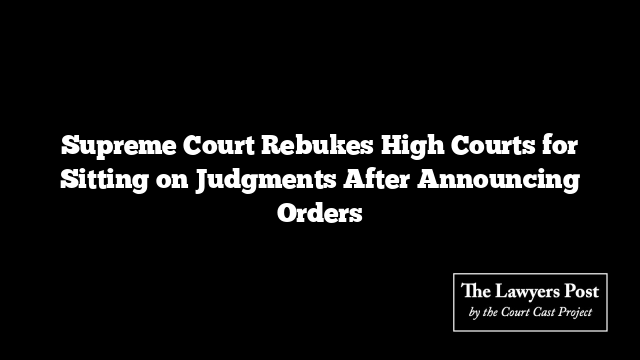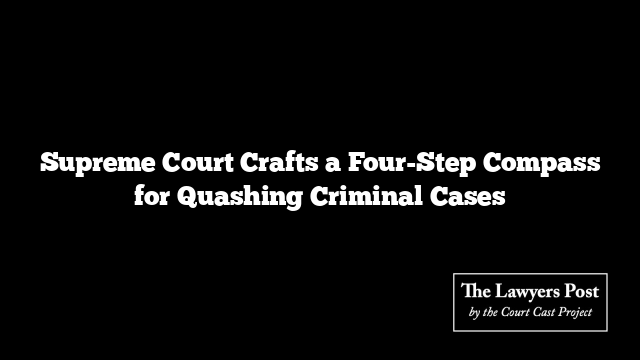The country’s top court has sent out a sharp reminder to High Courts: once you pronounce the operative part of a judgment, don’t let the detailed reasoning gather dust.
The bench of Justices JB Pardiwala and Sandeep Mehta took issue with a troubling instance from the Punjab & Haryana High Court, where a criminal appeal saw the conviction upheld in open court, but the written judgment only surfaced after an astonishing delay of two years and five months.
The convict tried to use this gap as a ground to knock down the verdict before the Supreme Court. But the apex court refused to overturn the conviction, pointing out that the testimony of two eyewitnesses was credible and unimpaired by the delay. “A late upload cannot, by itself, demolish an otherwise sound conviction,” the bench held.
Still, the justices expressed “grave concern” over the practice, warning that it chips away at transparency and hurts litigants’ ability to seek further remedies—particularly in criminal cases where liberty is at stake.
The court dusted off its own earlier ruling in Anil Rai v. State of Bihar (2001), which laid down a clear rule: judgments should follow within three months of being reserved. It also recalled later directions, including one that requires a Registrar to alert the Chief Justice of a High Court if a verdict remains undelivered past the three-month mark, and another that insists on reasoned judgments being issued within days of pronouncing the operative part.
“This practice of pronouncing operative orders and making parties wait endlessly for reasons has been deprecated time and again,” the bench observed, adding that it strips away the right to timely judicial redress.
With these cautionary words, the Supreme Court dismissed the appeal in Rajan v. State of Haryana—but not without putting High Courts on notice: justice delayed in writing can easily become justice denied in spirit.





